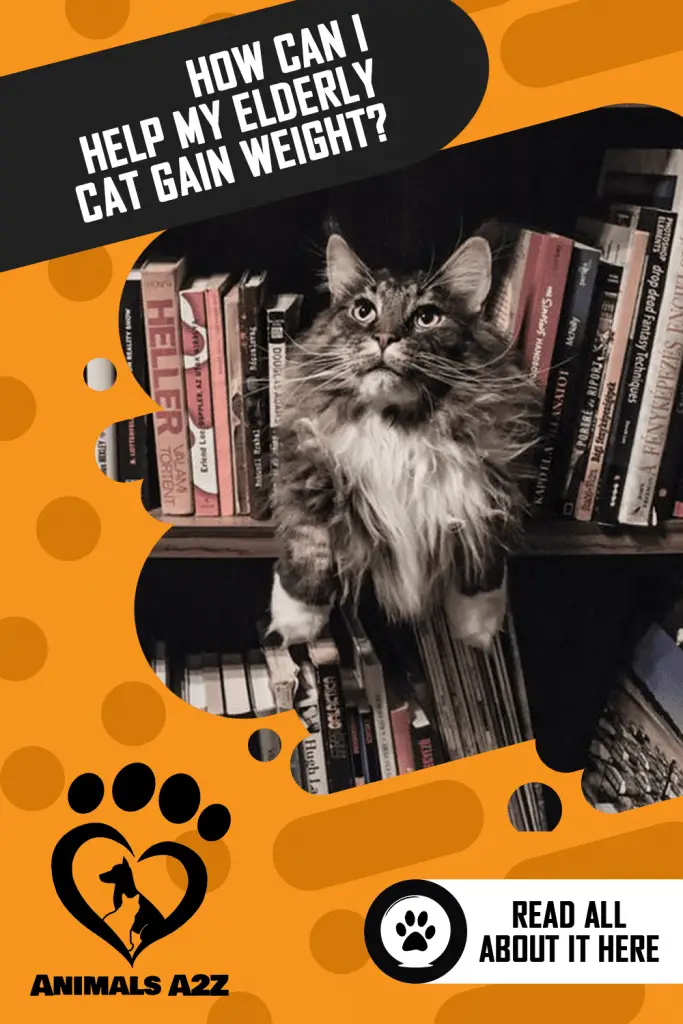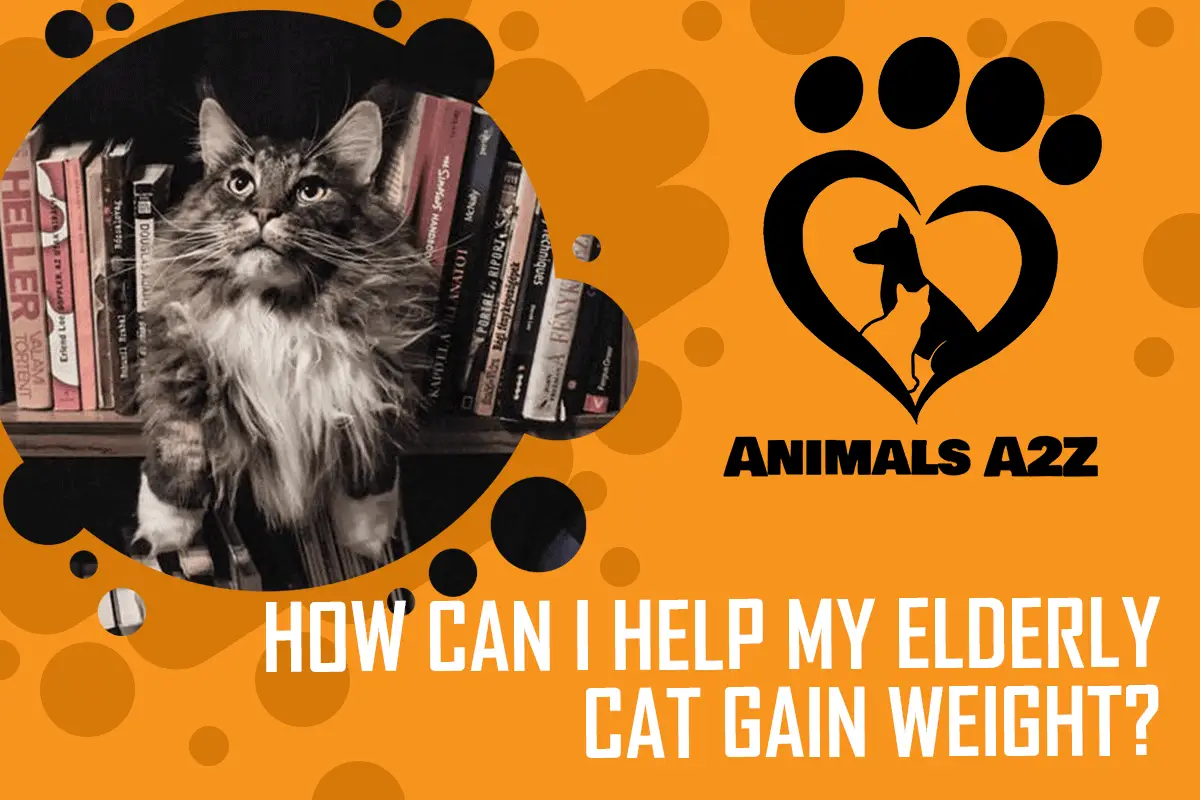Most felines simply need more foods on top of their regular portions and/or free access to kibble or treat in order for them to gain weight. Your cat may prefer to eat small portions of meals throughout the day, which is why having food accessible for him all day can definitely make the difference. However, make sure to talk to your vet about it first to know if it’s a good option for your furry pal.
If you think your cat needs to gain weight, the very first thing you should do is to bring him to your vet so that any underlying medical condition can be ruled out.
Table of Contents
The quick answer: How can I get my older cat to gain weight?
When you want your older cat to gain weight, it is important that the cat is comfortable around mealtime, and that there is no stress related to eating. One way that often works for older cats, is to divide portions into smaller meals. It also works wonders to heat up their food.
What to feed a senior cat to gain weight
It’s really difficult to take care of a senior underweight cat. They are often picky eaters and tend to exhibit more demanding behavior towards people than dogs and other pets do. This is especially true if your cat gets even older. Knowing what you should feed your senior cat in order to gain weight could be difficult for fur parents.
What you should do as a cat parent is to remember that attempting to get your senior cat to gain more weight is to put to more flexibility and patience. Take note that a particular strategy that works well for one cat might not work for another. Having said that, you’ll have to learn more about your cat’s individual needs as well as pay more attention to the body language he’s showing you, like how they show displeasure or pleasure when you’re encouraging him to eat.
Encouraging your senior cat to eat
Before you start to encourage your senior to eat, it’s highly advised that you rule out any medical condition first. You should bring your cat to your veterinarian and let him be assessed properly so that proper diet, medication, tests will be given. Once you have all the results and eliminated the health issues as the underlying cause of the sudden weight loss of your senior cat, you can then begin encouraging him to eat healthily.
You can follow the tips we’ll list below as your starting point in exploring options and to figure out what and how you should feed your senior cat. Naturally, cats are finicky eaters, and it’s common for them to decide whether he likes the food or not. As such, try approaching the process with the goal of providing your cat the nutrition he needs.
Changing your cat’s food
Changing the food of your cat is usually considered as people’s last resort – but it does not have to be. In fact, your senior cat can be able to give you indicators whether they like certain cat food or not. If your cat turns his nose up at the regular cat food that you’re giving him, then this may be a sign that he wants to try new food. Your senior cat might respond well to a new flavor, like changing from beef flavor to a tuna or chicken flavoring. It is very important that you know well how to properly switch foods for your cat before you do it yourself. During the first few weeks, make sure you include a half portion of the new food and half portion of the old food so that your cat will get used to the ingredients you’re offering him.
[crp]
Common questions about how to help your senior cat gain weight
Why is my senior cat so skinny?
The reasons for skinny senior cats and weight loss is often diabetes mellitus, chronic renal disease, IBD or inflammatory bowel disease, exocrine pancreatic insufficiency, dental problems, and hyperthyroidism. It is also possible that your cat is skinny without any underlying condition. What you should do is to encourage him to eat by offering new foods.
What should I feed my elderly cat?
Cat foods that are specially created for senior cats can be able to provide high-quality protein content. Cat food for elderly cats often also have extra E vitamins added in order to develop and strengthen the natural defenses of your cat.
Is wet food better for older cats?
It is often better for older cats if you serve them wet food. That is especially the case if they already have dental or gum problems. The soft texture of canned wet cat foods may be easier for senior cats to eat opposed to the crunchy kibble they usually ate as kittens and young cats.
Conclusion
In helping your senior cat to gain more weight, it’s very important that you get the right nutrient balance so that his system will not become aggravated. For instance, while energy-dense fats could help your feline friend gain weight, there’s also a possibility that it can result in diarrhea. In order to know what is the best food for your senior cat, we highly recommend that you ask your vet for more reliable recommendations.


